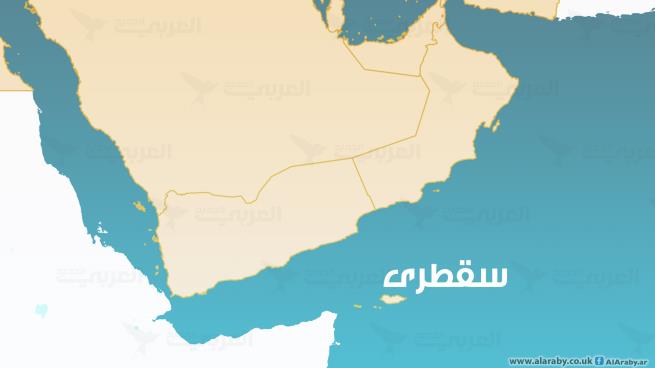
The Saud regime collusion with the new coup d’etat of the UAE militia on the island of Socotra in eastern Yemen raised anger among Yemenis of the Arab coalition and its practices.
The legitimate Yemeni government said that the UAE-backed Southern Transitional Council “carried out a full-fledged coup in the Socotra Governorate” in the far southeast.
The Yemeni Foreign Minister, Muhammad al-Hadrami, warned that the rebellion would end the remaining hope for implementing the Riyadh agreement.
The official Yemeni news agency (Saba) quoted an official source in the government as saying that the Council militias in the Socotra archipelago undermined the state institutions in the governorate as they launched an attack on state institutions and citizens ’properties by medium and heavy weapons, and stormed camps and government headquarters.
The government official called on the Saudi-led coalition to compel the Council to “stop chaos and aggression, and implement the provisions of the Riyadh agreement.”
The internationally recognized government and the Council signed in November 2019 the Riyadh agreement after a month of fighting, which included 29 articles to address the political, economic, military and security situation in the south. However the two sides have been exchanging accusations about responsibility for not implementing the agreement.
Minister Al-Hadrami tweeted that the Riyadh agreement could not be must not be used as a pretext for the continuation of this armed rebellion, or as a pressure tool to legitimize those who insist on the coup.
The Council, which expelled government forces from the temporary capital, Aden, announced last April a state of public emergency, and self-administration in southern Yemen, amid Arab and international rejection.
After controlling the Special Forces Camp, the last military base of the internationally recognized legitimate government, which did nothing but denouncing “the new armed coup” and demanded Saudi Arabia to intervene urgently, the Council took full control of Socotra Archipelago.
A local official in Socotra said that the province was completely under the control of the separatists after months of tension, unrest and military buildup. “No fighting took place in the Special Forces Camp. A negotiation took place with its leadership to surrender, which is what actually happened,” he added.
Surrendering the Camp by negotiation was part of a strategy implemented by the Houthis when they first started the coup and invaded Sana’a in late 2014. The Southern Transitional Council appears to repeat the same scenario, especially after publishing footage from within the office of Socotra Governor Ramzi Mahrous, similar to the photos published by the Houthis on the eve of September 21, 2014, from the office of Lieutenant-General Ali Mohsen al-Ahmar.
The separatists also took control of the headquarters of the local council of the Qalansia district, which is the second most important district in the archipelago after Hadiboh, where they had a number of camps in the area in the past.
The separatists toppled the Republic of Yemen flags from government headquarters and military bases, and raised the flags of their supposed state “the Arab South”.
While the legitimate authorities could thwart a number of suspicious shipments, some of which carried weapons aboard, controlling the port of Socotra and the airport, the separatists are now able to receive any sea or air trips coming from the UAE, without any government oversight.
Socotra residents fear that the separatists might carry out waves of abuses, or create secret prisons to torture opponents, similar to what they did in Aden and Mukalla, during the past years.
In spite the distress call made by the legitimate government, on Friday evening, te Saudi alliance resorted, through its media, to present “deceptive and illogical” novels, observers indicate.
Saudi media quoted unnamed sources from the Arab coalition as saying that the conflict in Socotra “may be aimed at obtaining spoils, including tanks and heavy artillery, that were found on the island and were present before the Houthi militia coup.”
The gains achieved by the transitional forces in Socotra might threat the legitimate government in Abyan governorate, where battles continue amid huge losses in both sides.